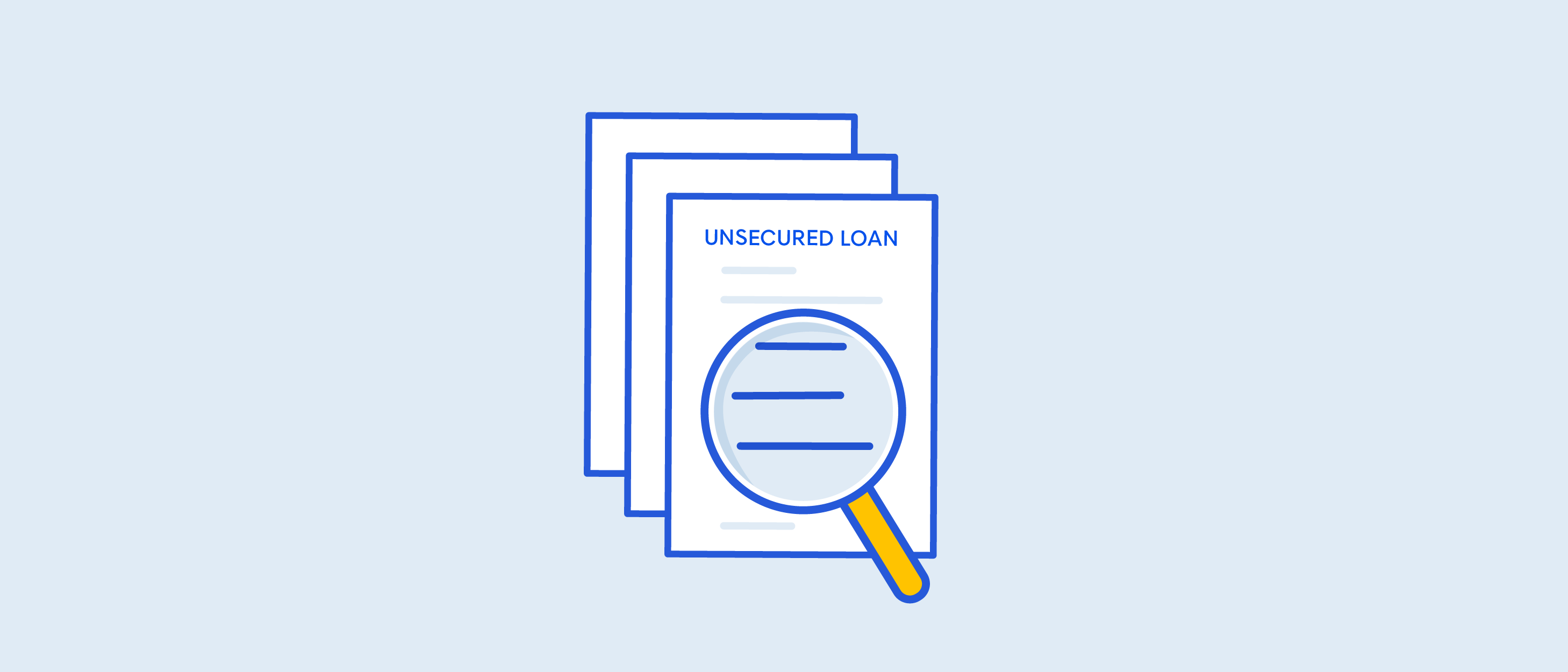What is an Unsecured Personal Loan and How Does it Work?

Summary
An unsecured personal loan doesn't require collateral – something valuable you own, like a car or house – to borrow funds. Here's what you need to know about unsecured loans.
In this article:
If you need to borrow money for a large purchase like replacing your outdated refrigerator or covering a major car repair, you may be considering an unsecured personal loan. But what is this type of loan exactly? And how does it work?
We’ll explain the different types of unsecured loans, how to qualify and what you need to know to make a smart choice when borrowing.
What is an unsecured personal loan?
An unsecured loan doesn't require collateral, something of value that you own – such as a vehicle, home or a boat – that the lender can claim if you default on your payments. You don't have to secure your debt with your personal property. Most lenders approve an unsecured loan based on your credit history, income and other factors that determine your creditworthiness.1
Unsecured loans are a good option if you have a more favorable credit score and don't want to risk losing your collateral if you default on the loan. However, unsecured loans typically may have higher interest rates than secured loans.
Types of unsecured loans
You may already be familiar with unsecured loans and not even realize it. Here are some common examples of unsecured loans:
Personal loans: This is a lump sum you can borrow from a lender and repay in fixed monthly installments over a set period of time. Personal loans can be used for different reasons, like debt consolidation or medical bills.
Student loans: Used to pay for college or graduate school tuition, room and board, books and other supplies, student loans are unsecured loans issued either by the government or private lenders. Monthly payments typically start after a six-month postgraduation grace period.
Personal line of credit: Like credit cards, you can borrow up to your approved credit limit, pay the balance due, and continue to borrow up to the limit again.
Resembling a loan, unsecured credit cards are also a way to get access to revolving credit without requiring collateral. Credit cards allow you to borrow up to a limit, repay and then borrow again as needed.
Pros and cons of unsecured personal loans
Let's go over some of the pros and cons of unsecured personal loans, so you can make the best decision for your financial needs.
Pros
No need for collateral: You don't have to pledge an asset, like your car or home, to get the loan.
Quick approval: Since there's no need to assess the value of your asset, you could get the funds faster.
No risk to your assets: Since you’re not required to offer up collateral, you won’t risk losing your assets if you fall behind on payments.
Cons
Potentially higher interest rates: Because unsecured loans don’t require collateral, interest rates, which are a reflection of the lender's risk, may be based on factors like your credit score and income.
Loan amounts: The borrowing amount you qualify for will depend on your creditworthiness and the lender’s criteria.
Approval requirements: Some lenders may review your credit history and financial stability more closely than they would for a secured loan.
Increase your chances of approval for an unsecured personal loan
Unsecured loans typically require a higher credit score than secured loans, so it may be more difficult to qualify if you have less-than-perfect credit. If this applies to you, it’s a good idea to discuss other options with the lender that may be a better fit.
Here are a few things you can do to improve your chance of getting approved for a loan.
Pay down outstanding debt – Reducing the amount of debt you have can lower your debt-to-income ratio (DTI), improve your credit score and increase your chances of approval. Focus on paying off credit cards, making extra loan payments, or tackling high-interest debt first.
Start by checking your credit report. If you find any errors, contact creditors immediately to investigate each discrepancy.
Ask a family member or close friend to cosign on your loan.
Another good idea is to check your eligibility before you apply, which is called prequalification.
Prequalifying can help you avoid a hard credit inquiry, which, when done repeatedly, can negatively impact your credit.
The more you know, the smarter you borrow
You may not need to rely on your assets to get the funds you need. Understanding how unsecured personal loans work can help you make smart money choices.
Sources:
1 https://www.bankrate.com/loans/personal-loans/documents-required-for-personal-loan/
2 https://www.myfico.com/credit-education/credit-scores#
*This article has been updated since 2020. Jessica Leshnoff and Kim Gallagher contributed to this post.
This article is for general education and informational purposes, without any express or implied warranty of any kind, including warranties of accuracy, completeness, or fitness for any purpose and is not intended to be and does not constitute financial, legal, tax, or any other advice. Parties (other than sponsored partners of OneMain Financial (OMF)) referenced in the article are not sponsors of, do not endorse, and are not otherwise affiliated with OMF.



